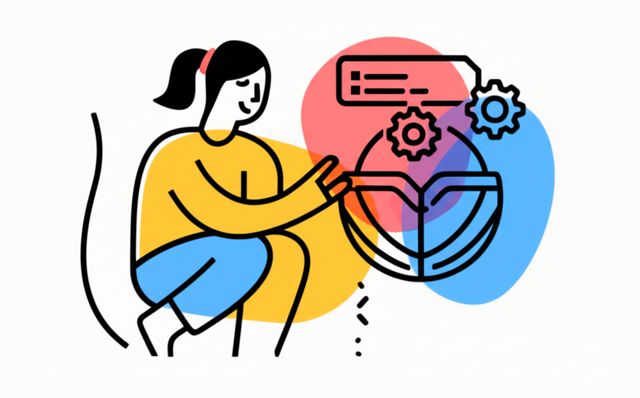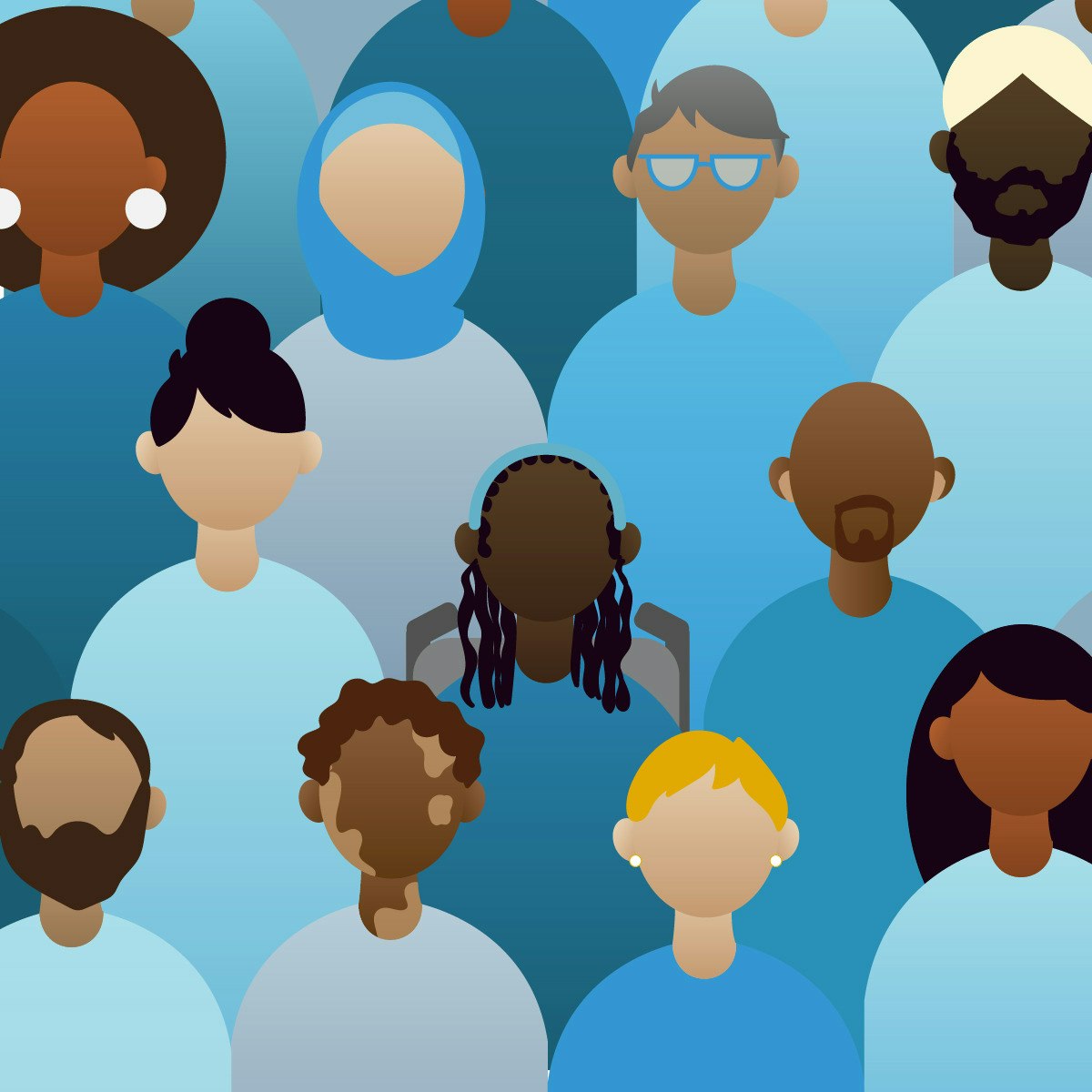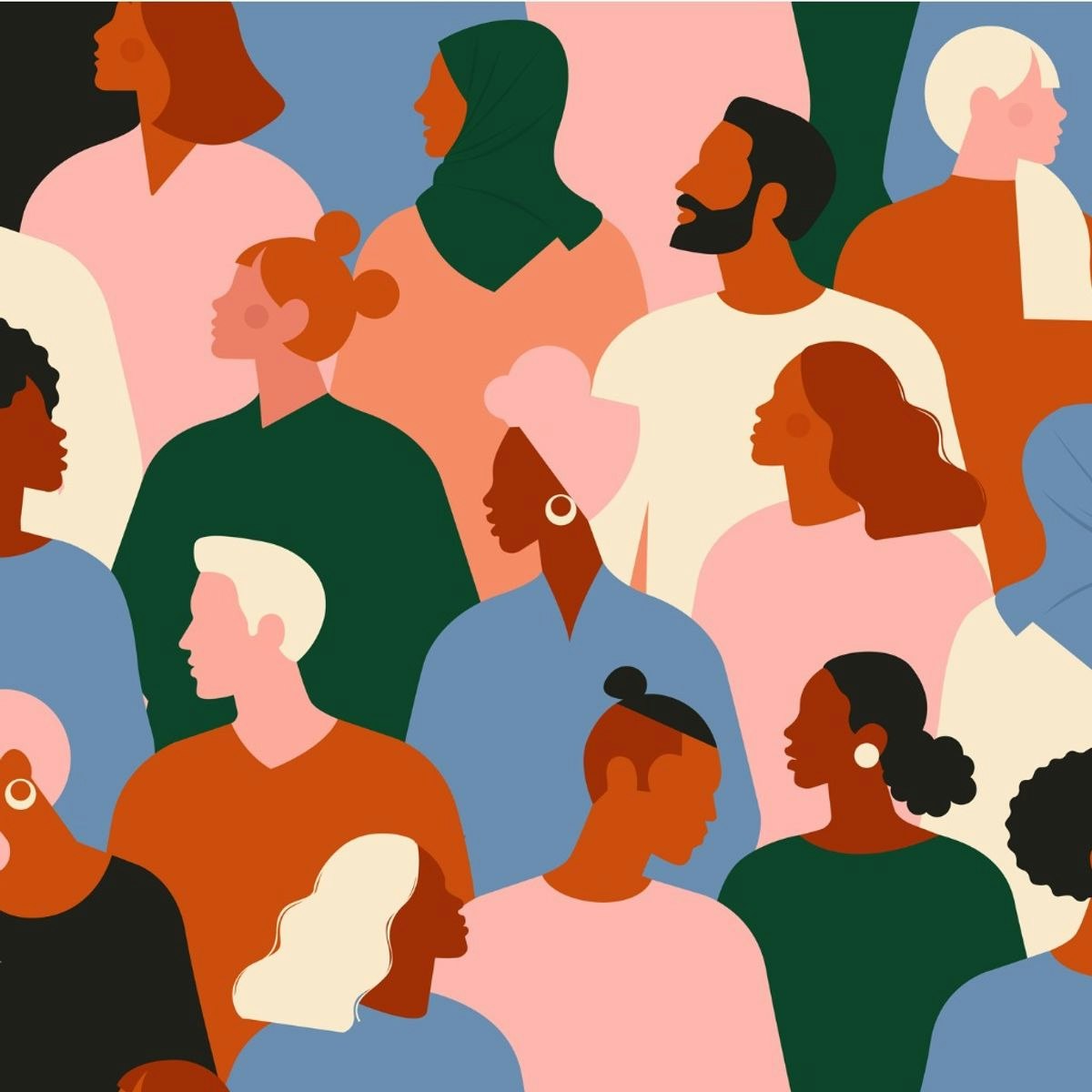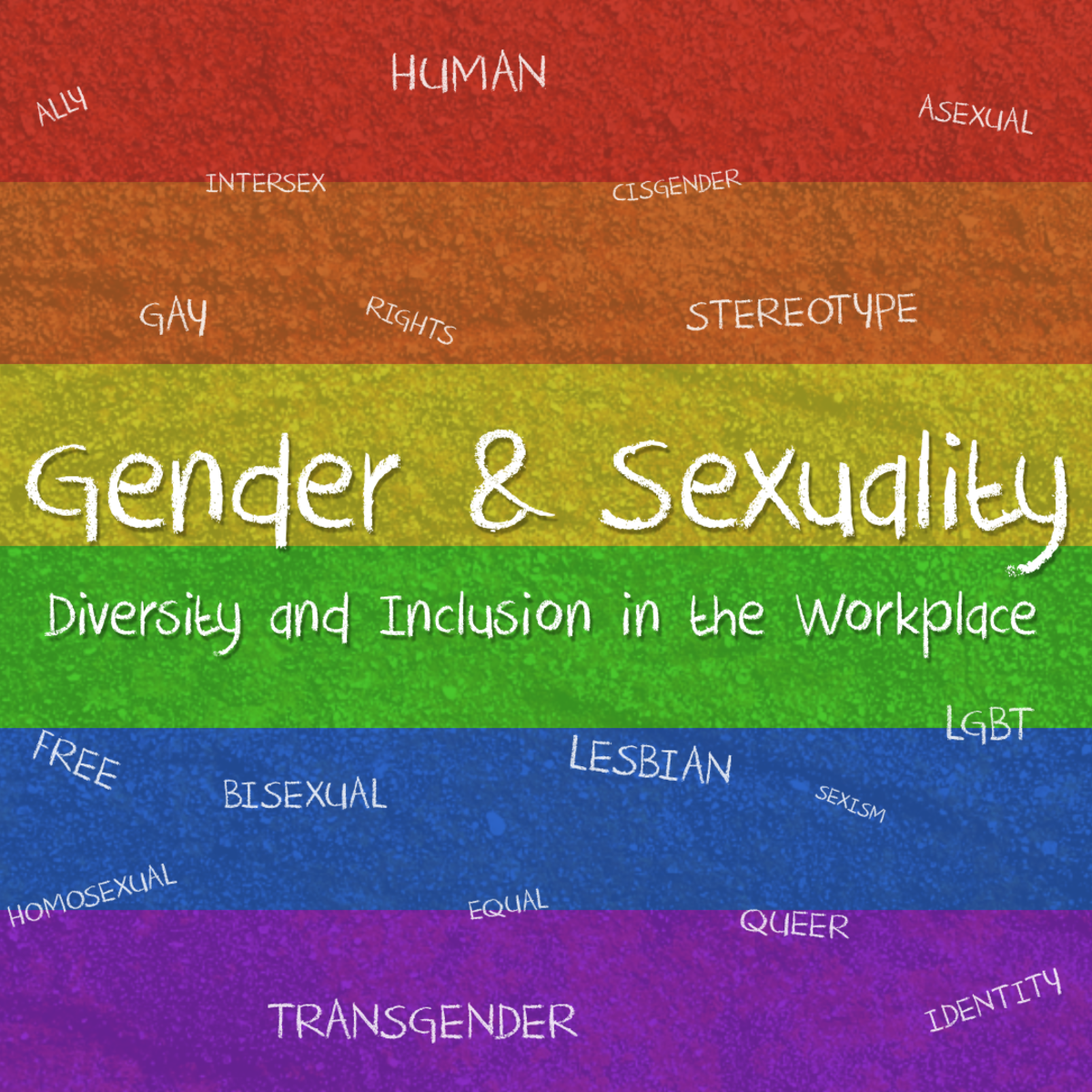Diversity and Inclusion Officer
barking on a Career as a Diversity and Inclusion Officer
A Diversity and Inclusion (D&I) Officer is a professional dedicated to fostering an environment of equity, belonging, and respect within an organization. At a high level, their work involves developing and implementing strategies, policies, and programs that promote diversity in its many forms – including but not limited to race, ethnicity, gender, sexual orientation, age, disability, religion, and socioeconomic status. They champion initiatives that ensure all individuals have an equal opportunity to thrive and that the organizational culture is welcoming and supportive of everyone. This role is increasingly vital as organizations recognize the inherent value and business benefits of a diverse and inclusive workforce.
Working as a D&I Officer can be deeply rewarding. One of the most engaging aspects is the opportunity to be a catalyst for positive change, directly impacting organizational culture and employee well-being. Another exciting element is the strategic nature of the role; D&I Officers often work closely with senior leadership to embed diversity and inclusion principles into the core fabric of the business. Furthermore, the field is dynamic and constantly evolving, requiring continuous learning and adaptation to new research, societal shifts, and global best practices.
Introduction to Diversity and Inclusion Officers
This section will explore the fundamental aspects of the Diversity and Inclusion Officer role, providing a clear understanding of what the position entails and its significance in today's world. We will delve into the core responsibilities, trace the historical development of this profession, and examine its growing importance in workplaces globally. Understanding these foundational elements is crucial for anyone considering a career in this impactful field.
What is a Diversity and Inclusion Officer and What Do They Do?
A Diversity and Inclusion (D&I) Officer, sometimes referred to as a Chief Diversity Officer (CDO) or a similar title, is primarily responsible for leading and managing an organization's efforts to create and maintain a diverse workforce and an inclusive environment. Their duties are multifaceted and strategic, aiming to embed D&I principles across all organizational levels and functions. This involves much more than simply ensuring compliance with anti-discrimination laws; it's about proactively cultivating a culture where every employee feels valued, respected, and empowered to contribute their unique perspectives and talents.
Core responsibilities often include developing and implementing comprehensive D&I strategies that align with the overall business objectives. This can involve working with human resources to diversify talent pipelines and recruitment practices, designing and delivering D&I training programs for employees at all levels, and establishing employee resource groups or affinity networks. D&I Officers also play a crucial role in assessing and monitoring the organization's progress on D&I goals, often utilizing data analytics to measure the impact of initiatives and identify areas for improvement.
Furthermore, D&I Officers act as key advisors and partners to senior leadership, helping to shape policies and practices that support an equitable and inclusive workplace. They may be involved in addressing incidents of discrimination or harassment, mediating conflicts, and promoting open dialogue around sensitive D&I topics. The ultimate aim is to foster a workplace where diversity is not just present, but is actively leveraged as a strength that contributes to innovation, employee engagement, and overall organizational success.
The Evolution of the D&I Role in Organizations
The role of the Diversity and Inclusion Officer, and indeed the broader focus on DEI in organizations, has a rich history rooted in social justice movements. Many trace its origins back to the civil rights movements of the mid-20th century, particularly the Civil Rights Act of 1964 in the United States, which prohibited employment discrimination based on race, color, religion, sex, or national origin. Early efforts were primarily focused on legal compliance and affirmative action, aiming to address historical underrepresentation and overt discrimination.
During the 1970s and 1980s, the scope began to broaden beyond race to include gender, driven by the feminist movement, and later expanded to encompass other identity groups such as ethnic, religious, and LGBTQ+ communities. The 1990s marked a significant shift, as organizations started to recognize the business case for diversity, viewing it as a competitive advantage rather than solely a legal or moral obligation. This era saw the emergence of dedicated diversity professionals and the introduction of diversity training programs aimed at increasing cultural awareness and reducing bias.
The 2000s brought an increased emphasis on "inclusion," recognizing that simply having a diverse workforce wasn't enough; organizations also needed to create an environment where diverse individuals felt fully integrated, valued, and able to participate. The role of the Chief Diversity Officer (CDO) began to gain prominence during this time. More recently, events such as the #MeToo movement and #BlackLivesMatter have further accelerated the focus on DEI, prompting many organizations to deepen their commitments and integrate DEI more holistically into their business strategies. The field continues to evolve, with growing attention on issues like psychological safety, allyship, and intersectionality.
Why D&I Officers are Essential in Today's Global Workplace
In today's interconnected and rapidly changing global marketplace, Diversity and Inclusion Officers play an indispensable role. Organizations increasingly understand that a diverse workforce and an inclusive culture are not just ethical imperatives but also critical drivers of business success. Companies with strong D&I practices often experience enhanced innovation, improved employee engagement and retention, and better financial performance.
The global nature of modern business means that companies interact with a wide array of customers, clients, and partners from diverse cultural backgrounds. A workforce that reflects this diversity is better equipped to understand and meet the needs of a global market. D&I Officers help organizations to build this representative workforce and to cultivate the cultural competence necessary to navigate international business effectively. They ensure that global D&I strategies are adaptable and sensitive to local cultural contexts, recognizing that a one-size-fits-all approach is rarely effective.
Furthermore, there is a growing expectation from employees, particularly younger generations, that their workplaces will be diverse, equitable, and inclusive. A strong commitment to D&I can be a significant factor in attracting and retaining top talent. D&I Officers champion the creation of environments where all employees feel a sense of belonging and are empowered to contribute their best work, which is crucial for fostering a positive and productive organizational culture worldwide. As societal awareness of equity issues continues to grow, the leadership provided by D&I Officers is vital for organizations striving to be responsible, forward-thinking, and successful global citizens.
Core Competencies for Diversity and Inclusion Officers
Succeeding as a Diversity and Inclusion Officer requires a unique blend of skills, knowledge, and personal attributes. This section outlines the critical competencies that are essential for effectiveness in this challenging and rewarding field. From interpersonal abilities like cultural competency and conflict resolution to analytical skills for measuring impact, these competencies form the bedrock of a successful D&I practitioner.
Essential Skills: From Cultural Competency to Conflict Resolution
A fundamental competency for any D&I Officer is a high degree of cultural competency. This involves not only understanding and respecting different cultural backgrounds, norms, and values but also being able to effectively communicate and interact with people from diverse groups. It requires self-awareness of one's own biases and a continuous commitment to learning about others. This skill is crucial for building trust and fostering an environment where everyone feels understood and valued.
Effective conflict resolution skills are also paramount. D&I work can often involve navigating sensitive issues, addressing grievances, and mediating disagreements related to diversity and inclusion. The ability to handle these situations with empathy, fairness, and a solutions-oriented approach is critical. This includes facilitating difficult conversations and helping individuals and groups find common ground.
These courses can help aspiring D&I professionals develop strong communication and feedback skills, which are crucial for navigating diverse environments and managing conflict effectively.
Strong communication skills, both written and oral, are indispensable. D&I Officers must be able to articulate complex ideas clearly and persuasively to a variety of audiences, from employees to senior executives. This includes delivering training, writing policies, and advocating for D&I initiatives. Coupled with this is the need for excellent interpersonal and relationship-building skills to collaborate effectively with stakeholders across the organization. Finally, organizational and project management skills are necessary to plan, execute, and evaluate D&I programs and initiatives.
For those looking to build a foundational understanding of D&I principles and how to advocate for them within an organization, the following courses offer valuable insights.
Relevant Certifications in the DEI Field
While formal certifications are not always mandatory to become a Diversity and Inclusion Officer, they can significantly enhance a candidate's credibility and demonstrate a specialized level of knowledge. Various organizations offer Diversity, Equity, and Inclusion (DEI) certifications that cover a range of topics, from foundational concepts to advanced strategies and measurement. Pursuing such certifications can be a valuable step for individuals looking to enter the field or for current professionals seeking to deepen their expertise.
These certifications often involve coursework, examinations, and sometimes practical experience components. They can provide a structured learning path, exposure to best practices, and a network of peers in the D&I space. When considering certifications, it's advisable to research the issuing organization's reputation, the curriculum content, and its relevance to your career goals. Some certifications might focus on specific industries or aspects of D&I, such as inclusive leadership or unconscious bias mitigation.
For aspiring D&I Officers, particularly those transitioning from other fields, a certification can help bridge knowledge gaps and signal a serious commitment to the profession. For experienced practitioners, advanced certifications can offer opportunities for continued professional development and specialization. Many online platforms also offer courses and certificate programs in D&I, providing accessible and flexible learning options. Learners can explore these options on platforms like OpenCourser's professional development section.
Analyzing Data to Measure Inclusion and Drive Strategy
In the increasingly data-driven world of modern organizations, the ability to analyze data is a critical competency for Diversity and Inclusion Officers. Gut feelings and anecdotal evidence are no longer sufficient to drive effective D&I strategy or demonstrate its impact. D&I professionals must be adept at collecting, interpreting, and utilizing both quantitative and qualitative data to understand the current state of diversity and inclusion within their organization, identify areas of concern, and measure the effectiveness of their initiatives.
This involves tracking key D&I metrics, which might include workforce representation at different levels, pay equity, promotion rates for underrepresented groups, employee engagement scores disaggregated by demographic groups, and retention rates. Data analysis can also help in identifying unconscious biases in processes like hiring or performance reviews. For instance, analyzing recruitment data might reveal disparities in sourcing or selection that disadvantage certain groups. Understanding these patterns is the first step towards designing targeted interventions.
Beyond just tracking numbers, D&I Officers need to be able to translate data insights into actionable strategies and communicate these findings effectively to stakeholders. This means presenting data in a clear, compelling way that highlights not only challenges but also progress and opportunities. The ability to show a return on investment (ROI) for D&I initiatives, even if indirectly through metrics like improved innovation or reduced turnover, can be crucial for securing buy-in and resources from leadership. Proficiency in data analysis helps D&I Officers move from well-intentioned efforts to evidence-based practices that drive meaningful and sustainable change.
These books offer practical insights and frameworks for implementing effective diversity and inclusion strategies, grounded in research and real-world examples. They can be valuable resources for understanding how to drive change and measure its impact.
Career Pathways to Becoming a Diversity and Inclusion Officer
The journey to becoming a Diversity and Inclusion Officer can vary significantly. There isn't one single prescribed path, and professionals often enter this field from diverse academic and professional backgrounds. This section explores common routes, including transitioning from related fields, starting in entry-level D&I roles, and advancing to senior leadership positions like Chief Diversity Officer. Understanding these pathways can help aspiring D&I professionals chart their course.
Pivoting from Human Resources, Education, or Social Sciences
Many individuals transition into Diversity and Inclusion roles from adjacent fields such as Human Resources (HR), education, and various social sciences. Professionals in Human Resources often possess a strong foundation in employment law, talent management, employee relations, and organizational development, all of which are highly relevant to D&I work. Experience in areas like recruitment, training, and policy development provides a natural springboard into focusing on the diversity and inclusion aspects of these functions.
Those with backgrounds in education, whether as teachers, administrators, or curriculum developers, often bring valuable skills in pedagogy, facilitation, and understanding diverse learner needs. Their experience in creating inclusive learning environments and addressing systemic inequities within educational systems can be directly applicable to the workplace. Similarly, individuals with degrees and experience in social sciences like sociology, psychology, anthropology, or social work often have a deep understanding of social structures, group dynamics, cultural differences, and systemic inequality, providing a strong theoretical and practical basis for D&I work.
Making a successful pivot often involves intentionally seeking out D&I-related projects or responsibilities in a current role, pursuing additional education or certifications in D&I, and networking with professionals already in the field. Highlighting transferable skills such as communication, empathy, analytical thinking, and project management is also crucial. It's an encouraging path for those passionate about equity and inclusion who wish to leverage their existing expertise in a new and impactful way. Remember, the journey might have its challenges, but the skills and perspectives gained from these fields are invaluable assets in the D&I space.
These courses delve into human capital management and organizational behavior, providing essential knowledge for those transitioning from HR or social sciences into D&I roles. They cover topics like team management, change management, and understanding employee motivation, all crucial for effective D&I strategy.
Starting Out: Entry-Level D&I Roles like DEI Coordinator
For individuals beginning their careers or those making a direct entry into the Diversity and Inclusion field without extensive prior experience in related areas, entry-level roles provide a crucial stepping stone. Positions such as DEI Coordinator, Diversity Program Assistant, or Inclusion Specialist offer opportunities to gain foundational experience and develop core D&I competencies under the guidance of more seasoned professionals. These roles are vital for the day-to-day execution of D&I initiatives.
The responsibilities in these entry-level positions can be varied. They might involve assisting with the organization of D&I events and training sessions, conducting research on best practices, helping to collect and analyze D&I data, supporting employee resource groups, and contributing to the development of D&I communications. This hands-on experience is invaluable for understanding the practical application of D&I principles within an organization.
While these roles are "entry-level," they still require a strong passion for D&I, good organizational and communication skills, and a willingness to learn. Building a portfolio of relevant experiences, even through volunteer work or internships focused on diversity and equity, can be beneficial when applying for these positions. It's important to approach these roles with dedication and a proactive mindset, as they offer a fantastic platform to learn, grow, and begin making a tangible impact in the field of diversity and inclusion.
For individuals looking to build practical skills in fostering inclusive environments, especially concerning bias and harassment, these courses are highly recommended.
Climbing the Ladder: Advanced Roles such as Chief Diversity Officer
As Diversity and Inclusion professionals gain experience and demonstrate impact, opportunities for advancement to more senior and strategic roles become available. Positions like Diversity and Inclusion Manager, Director of D&I, Vice President of D&I, and ultimately, Chief Diversity Officer (CDO) represent a progression towards greater leadership, responsibility, and influence within an organization. These advanced roles are typically responsible for setting the overarching D&I vision and strategy for the entire enterprise.
A Chief Diversity Officer, for example, often sits on the executive leadership team and works closely with the CEO and other C-suite executives to ensure that D&I is integrated into all aspects of the business. Their responsibilities include not only internal D&I efforts but also considering the organization's impact on external stakeholders, such as customers, communities, and suppliers, from a diversity and equity perspective. Advanced roles require strong leadership skills, strategic thinking, business acumen, and the ability to influence change at a systemic level.
The path to these senior positions usually involves a proven track record of developing and implementing successful D&I initiatives, demonstrating measurable results, and building strong relationships with key stakeholders. Many who reach these levels have extensive experience in D&I or related fields, often complemented by advanced degrees or specialized certifications. While the journey to a CDO role can be demanding, it offers the profound opportunity to shape organizational culture and drive significant, positive change on a large scale.
These books provide essential reading for current and aspiring D&I leaders, focusing on inclusive leadership and understanding systemic issues that impact diversity efforts.
Formal Education and Training Requirements
While passion and experience are vital, formal education and targeted training often lay a critical groundwork for a career as a Diversity and Inclusion Officer. This section discusses relevant academic degrees, specialized graduate programs, and the role of workshops and professional development courses in equipping individuals with the necessary knowledge and skills for this field. Understanding these educational pathways can help aspiring D&I professionals make informed decisions about their learning journey.
Relevant Degrees: Sociology, Organizational Psychology, and More
A variety of academic disciplines can provide a strong foundation for a career in Diversity and Inclusion. Degrees in Social Sciences are particularly relevant. For instance, a background in Sociology offers insights into social structures, inequality, group dynamics, and cultural variations, all of which are central to understanding and addressing D&I issues. Similarly, a degree in Organizational Psychology equips individuals with knowledge about human behavior in workplace settings, motivation, group processes, and organizational change, which are directly applicable to designing and implementing D&I initiatives.
Other relevant fields include Human Resources Management, which covers employment law, talent acquisition, and employee relations; Communication Studies, which hones skills in intercultural communication and messaging; and Public Policy or Social Work, which often involve a focus on social justice and advocacy. Degrees in Education can also be beneficial, particularly those with an emphasis on multicultural education or adult learning.
Ultimately, the "best" degree can depend on an individual's specific interests within D&I and their long-term career goals. What's often more important than the specific degree title is the development of critical thinking, analytical skills, research abilities, and a deep understanding of the social, cultural, and psychological factors that influence diversity and inclusion in organizational contexts. Many successful D&I professionals combine knowledge from multiple disciplines.
Graduate Programs with a Specialization in DEI
For those seeking advanced and specialized knowledge, pursuing a graduate program with a concentration or specialization in Diversity, Equity, and Inclusion can be a highly effective route. Many universities now offer Master's degrees or doctoral programs specifically focused on D&I, or have strong DEI components within broader programs like Organizational Leadership, Human Resource Management, Business Administration (MBA), or Social Justice. These programs provide an in-depth exploration of DEI theory, research, best practices, and practical application.
Curricula in these specialized graduate programs often cover topics such as unconscious bias, inclusive leadership, multicultural organizational development, D&I metrics and assessment, legal aspects of D&I, and strategies for driving systemic change. Students may engage in research projects, case studies, and internships that provide real-world experience in the D&I field. A graduate degree can enhance a candidate's competitiveness for D&I roles, particularly for leadership positions, and can provide a strong network of peers and faculty members.
When selecting a graduate program, it's important to consider the faculty's expertise, the program's curriculum and focus areas, opportunities for practical experience, and the career outcomes of alumni. Some programs might have a stronger emphasis on corporate D&I, while others might focus on non-profit or public sector contexts. Aligning the program's strengths with your career aspirations is key to maximizing the value of a graduate education in DEI.
The Role of Workshops and Professional Development Courses
Beyond formal degree programs, workshops and professional development courses play a crucial role in the continuous learning journey of a Diversity and Inclusion Officer. The D&I field is constantly evolving, with new research, emerging best practices, and shifting societal landscapes. Short courses, webinars, seminars, and workshops offer accessible and focused opportunities to stay updated on specific topics, develop new skills, and gain fresh perspectives.
These learning opportunities can cover a wide range of D&I-related subjects, such as specific dimensions of diversity (e.g., disability inclusion, LGBTQ+ allyship, generational diversity), practical skills (e.g., facilitating D&I dialogues, conducting D&I audits, inclusive talent acquisition), or emerging trends (e.g., the role of AI in D&I, measuring psychological safety). Many professional organizations, consulting firms, and educational institutions offer such programs. These can be particularly beneficial for individuals looking to deepen their expertise in a niche area or for those who need to quickly acquire knowledge on a new D&I challenge their organization is facing.
Engaging in ongoing professional development demonstrates a commitment to excellence and continuous improvement, which are highly valued in the D&I profession. It also provides valuable networking opportunities with other D&I practitioners. Many of these courses and workshops can be found online, offering flexibility for busy professionals. OpenCourser is an excellent resource for finding relevant courses across various platforms to support your professional development in D&I.
These courses are designed to help professionals cultivate diverse and inclusive organizations, providing strategies for talent management, fostering inclusive leadership, and developing DEI plans. They are suitable for those looking to formalize their understanding through structured learning.
Online Learning and Self-Guided Training
In an era of unprecedented access to information, online learning and self-guided training have become invaluable resources for aspiring and practicing Diversity and Inclusion Officers. These flexible and often affordable pathways offer opportunities to build foundational knowledge, acquire specific skills, and even gain certifications. This section explores how digital platforms, virtual internships, and MOOCs can be leveraged for career development in the D&I field, empowering individuals to take control of their learning journey.
DEI Certifications and Courses on Digital Platforms
Digital learning platforms have democratized access to Diversity, Equity, and Inclusion education, offering a wide array of courses and certifications. Reputable online providers and universities now feature programs specifically designed to equip learners with the knowledge and skills needed for D&I roles. These can range from introductory courses covering basic DEI principles to more advanced certifications focusing on strategic implementation and measurement. These resources are ideal for self-starters and those looking to supplement their existing education or experience.
When choosing an online DEI course or certification, it's important to evaluate the curriculum, the credibility of the instructors and the institution or platform offering it, and any reviews or testimonials from past learners. Look for programs that offer practical, actionable insights and, if possible, opportunities for interactive learning or project-based work. OpenCourser's comprehensive catalog, for instance, allows learners to browse professional development courses and compare options from various providers, making it easier to find a program that aligns with your specific learning goals and career aspirations. Many courses also focus on practical skills like developing D&I strategies or understanding the business case for diversity.
These courses offer comprehensive learning on DEI principles, strategy development, and practical application in the workplace. They are excellent choices for individuals seeking structured online learning to gain or enhance their DEI expertise.
The flexibility of online learning is a significant advantage, allowing individuals to study at their own pace and around their existing commitments. For those transitioning into D&I or looking to upskill, these digital resources can provide a structured and accessible pathway to acquiring specialized knowledge. Furthermore, many online courses offer certificates upon completion, which can be valuable additions to a resume or professional profile.
Gaining Experience: Virtual Internships and Project-Based Learning
Beyond theoretical knowledge, practical experience is crucial for aspiring Diversity and Inclusion Officers. Virtual internships and project-based learning opportunities offered online can provide invaluable hands-on experience, even for those who may not have access to traditional in-person internships. These experiences allow learners to apply D&I concepts to real-world or simulated scenarios, building a portfolio of work and developing practical skills.
Virtual internships in D&I might involve working remotely with an organization on specific projects, such as conducting research, helping to develop training materials, or assisting with D&I data analysis. Project-based courses, often found on MOOC platforms or specialized training sites, might require learners to develop a D&I strategic plan for a hypothetical company, design an inclusive recruitment process, or create a proposal for a D&I initiative. These activities help bridge the gap between theory and practice.
Building a portfolio through such experiences can significantly strengthen a candidate's profile when applying for D&I roles. It demonstrates initiative, practical skills, and a commitment to the field. When seeking these opportunities, look for programs that offer mentorship or feedback from experienced D&I professionals. Even contributing to D&I-focused projects in a volunteer capacity for non-profit organizations can be a great way to gain relevant experience and make a positive impact.
Leveraging MOOCs for Foundational D&I Knowledge
Massive Open Online Courses (MOOCs) have revolutionized access to education, and they can be an excellent resource for building foundational knowledge in Diversity, Equity, and Inclusion. Offered by universities and organizations worldwide, often through platforms like Coursera and edX, MOOCs cover a vast range of D&I-related topics. These courses are typically self-paced and can often be audited for free, with an option to pay for a certificate of completion.
MOOCs can provide a solid understanding of core D&I concepts, historical context, legal frameworks, and various dimensions of diversity. They can also introduce learners to key theories and research in the field. For individuals new to D&I, MOOCs offer a low-barrier entry point to explore the subject and determine if it's a career path they wish to pursue more formally. They are also useful for professionals in other fields who want to gain a better understanding of D&I to apply in their current roles.
To make the most of MOOCs, it's important to be disciplined and proactive in your learning. Engage with course materials, participate in discussion forums if available, and complete assignments even if you are auditing the course. Some MOOCs are part of larger specializations or MicroMasters programs, which can offer a more structured and in-depth learning experience. OpenCourser can help you find and compare D&I MOOCs to identify those that best suit your learning needs.
These courses focus on building strategies for diversity and inclusion, making them suitable for learners looking to understand how to plan and implement DEI initiatives within an organization.
These books offer valuable perspectives on building inclusive workplaces and understanding the impact of diversity. They are excellent resources for anyone looking to deepen their understanding of DEI principles through self-guided reading.
Challenges in Diversity and Inclusion Initiatives
While the work of a Diversity and Inclusion Officer is rewarding, it is not without its significant challenges. D&I initiatives often encounter obstacles that can hinder progress and require resilience, strategic thinking, and adept navigation. This section will explore some of of the common hurdles, including resistance to change, the complexities of balancing legal obligations with cultural transformation, and the nuances of addressing intersectionality in policy and practice. Understanding these challenges is vital for anyone aspiring to make a meaningful impact in this field.
Overcoming Resistance and Fostering Buy-In for DEI Programs
One of the most significant challenges D&I Officers face is navigating resistance to DEI programs. Resistance can manifest in various forms, from overt skepticism and pushback to more subtle forms of indifference or passive non-compliance. It can stem from a lack of understanding about the value of DEI, fear of change, discomfort with discussing sensitive topics, or concerns about perceived preferential treatment. Overcoming this resistance requires a multifaceted approach.
Firstly, building a strong business case for DEI is crucial. D&I Officers must clearly articulate how diversity and inclusion contribute to the organization's mission, goals, and bottom line, using data and evidence where possible. Secondly, fostering buy-in from leadership at all levels is essential. When leaders visibly champion DEI and hold themselves and others accountable, it sends a powerful message throughout the organization. Engaging employees as active participants in shaping and implementing DEI initiatives, rather than imposing them top-down, can also help to build ownership and reduce resistance.
Effective communication, empathy, and education are also key. This involves creating safe spaces for dialogue, addressing concerns transparently, and providing ongoing learning opportunities to help individuals understand their own biases and the importance of an inclusive culture. It's a journey of continuous effort, and D&I Officers must be prepared for gradual progress and setbacks, celebrating small wins while persistently working towards broader cultural shifts. Remember, changing hearts and minds takes time and consistent effort.
These books offer insights into leading change and handling difficult conversations, which are essential skills for D&I officers facing resistance and needing to foster buy-in.
Balancing Legal Compliance with Genuine Cultural Transformation
Diversity and Inclusion Officers often walk a tightrope between ensuring legal compliance and fostering genuine, sustainable cultural transformation. Legal frameworks, such as equal employment opportunity laws and anti-discrimination statutes, provide a necessary baseline for fair treatment and representation. Adherence to these laws is non-negotiable and a fundamental responsibility of the D&I function, often in close collaboration with legal and HR departments.
However, a purely compliance-driven approach to D&I is rarely sufficient to create a truly inclusive culture. Genuine cultural transformation goes beyond meeting legal minimums; it involves changing mindsets, behaviors, and deeply ingrained organizational norms. This means fostering an environment where employees from all backgrounds feel genuinely valued, respected, and that they belong – not just because the law requires it, but because the organization truly believes in the inherent worth and contribution of every individual.
The challenge lies in ensuring that D&I initiatives are not perceived merely as box-ticking exercises to avoid legal trouble. D&I Officers must champion efforts that are authentic, embedded in the organization's values, and aimed at creating systemic change. This might involve challenging existing power structures, addressing microaggressions, and promoting inclusive leadership practices. It's about moving from a reactive stance focused on preventing negative outcomes (like lawsuits) to a proactive stance focused on cultivating positive outcomes (like innovation, belonging, and high performance). This requires a long-term perspective and a commitment to deep, often uncomfortable, work.
This course focuses on civil rights enforcement and can provide D&I professionals with a deeper understanding of the legal frameworks they must navigate.
Addressing the Complexities of Intersectionality in Policy Design
A sophisticated and increasingly critical challenge for Diversity and Inclusion Officers is addressing intersectionality in policy design and practice. Intersectionality, a term coined by scholar Kimberlé Crenshaw, recognizes that individuals often belong to multiple social categories (e.g., race, gender, class, sexual orientation, disability) simultaneously, and that these intersecting identities can create unique experiences of discrimination or privilege that are different from the sum of their individual parts. For example, the experiences of a Black woman in the workplace may be different from those of a white woman or a Black man.
Designing D&I policies and initiatives that effectively address intersectionality requires moving beyond a focus on single identity categories. It means understanding how different forms of bias and disadvantage can overlap and compound, creating unique barriers for individuals with multiple marginalized identities. This complexity demands a nuanced approach to data collection, analysis, and program development. For instance, an organization might find that its overall gender pay gap is relatively small, but an intersectional analysis reveals a much larger gap for women of color or women with disabilities.
D&I Officers must champion the development of policies that are sensitive to these intersecting experiences. This might involve creating more targeted support programs, ensuring that employee resource groups collaborate and consider intersectional perspectives, and training leaders and employees to recognize and address the unique challenges faced by individuals at the intersections of various identities. It requires listening deeply to the lived experiences of employees and being willing to adapt strategies to be more inclusive of this complexity. This is an ongoing area of learning and development within the D&I field.
Global Perspectives on Diversity and Inclusion
As organizations increasingly operate across international borders, understanding and effectively managing Diversity and Inclusion in a global context becomes paramount. D&I strategies that are successful in one country may not be directly transferable to another due to differing cultural norms, legal frameworks, and societal understandings of diversity. This section explores the nuances of adapting D&I initiatives for diverse cultural settings, examines case studies from various regions, and discusses the role of global standards and frameworks in guiding international D&I efforts.
Adapting DEI Strategies for Different Cultural Contexts
A critical aspect of global Diversity and Inclusion work is the ability to adapt strategies to resonate with diverse cultural contexts. What constitutes "diversity" and how it is perceived can vary significantly from one country or region to another. For example, in some cultures, dimensions of diversity like religion, caste, or tribal affiliation may be more salient than in others. Similarly, communication styles, attitudes towards hierarchy, and expressions of inclusion can differ widely. A D&I Officer working in a multinational organization must be sensitive to these local nuances.
This requires moving away from a purely ethnocentric approach, where D&I policies developed in a headquarters country are simply rolled out globally without modification. Instead, effective global D&I involves a process of co-creation, engaging local leaders and employees to understand their specific needs, challenges, and cultural perspectives. It means translating global D&I principles into locally relevant practices. For instance, a global mentorship program might need to be adapted to account for different cultural norms around hierarchy and relationship-building.
Furthermore, legal and regulatory frameworks related to discrimination and equality vary considerably across countries. D&I strategies must not only be culturally sensitive but also compliant with local laws. This often requires close collaboration with legal counsel and HR professionals in each region. The goal is to create a D&I framework that is globally consistent in its core values and objectives, yet flexible enough to be implemented effectively and respectfully in diverse local contexts.
This book provides a valuable framework for understanding and navigating cultural differences in international business and D&I work.
Case Studies: D&I in the European Union vs. Asia-Pacific
Examining how Diversity and Inclusion initiatives are approached in different regions, such as the European Union (EU) and the Asia-Pacific (APAC), highlights the importance of contextual adaptation. While both regions are increasingly focused on D&I, the specific priorities, challenges, and strategies can vary significantly due to diverse cultural, historical, economic, and legal landscapes.
In the European Union, D&I efforts are often strongly influenced by EU-wide legislation and directives on non-discrimination and equality, covering grounds such as gender, age, disability, sexual orientation, race, and religion. There's often a significant focus on gender equality, including issues like gender pay gaps and representation in leadership. Many EU countries also have well-established social welfare systems and strong labor union movements that can influence D&I agendas. However, approaches can still vary considerably between individual member states due to their unique histories and cultural compositions. For instance, discussions around racial and ethnic diversity might be framed differently in countries with long histories of immigration compared to those with more homogenous populations.
The Asia-Pacific region is incredibly diverse, encompassing a vast array of cultures, languages, religions, and levels of economic development. Consequently, D&I priorities and approaches can differ dramatically from one APAC country to another. In some countries, gender diversity, particularly increasing women's participation in the workforce and leadership, is a key focus. In others, issues related to ethnicity, language, or age may be more prominent. The influence of traditional cultural values, family structures, and communication styles can also significantly shape how D&I is understood and implemented. Legal frameworks for D&I also vary widely across the APAC region. Successfully implementing D&I in APAC requires a highly localized and culturally nuanced approach.
These regional comparisons underscore that there is no single "global" approach to D&I. Effective international D&I leadership involves deep cultural intelligence, a willingness to learn and adapt, and a commitment to engaging with local stakeholders to develop strategies that are both impactful and respectful of diverse contexts.
The Role of Global Standards and Frameworks in D&I
While localization is key, global standards and frameworks can play a valuable role in guiding and harmonizing Diversity and Inclusion efforts across multinational organizations. International bodies, non-governmental organizations (NGOs), and industry consortiums sometimes develop principles, guidelines, or reporting frameworks related to D&I. These can provide a common language and a set of benchmarks for organizations operating in multiple countries.
For example, the United Nations Sustainable Development Goals (SDGs), particularly SDG 5 (Gender Equality) and SDG 10 (Reduced Inequalities), provide a broad international framework that can inform corporate D&I strategies. Similarly, initiatives like the UN Global Compact encourage businesses to adopt sustainable and socially responsible policies, including those related to human rights and non-discrimination. Some industry-specific groups also develop D&I standards or best practices relevant to their sector.
These global frameworks can help organizations to align their D&I efforts with internationally recognized principles and to demonstrate their commitment to responsible business conduct on a global scale. They can also facilitate benchmarking and the sharing of best practices across borders. However, it's important to remember that these global standards are often high-level and still require interpretation and adaptation to specific national and local contexts. D&I Officers in global roles must be skilled at leveraging these frameworks as a guide while ensuring that their implementation is culturally appropriate and legally compliant in each country of operation.
Ethical Considerations and Social Impact
The work of a Diversity and Inclusion Officer is inherently intertwined with ethical considerations and has a profound potential for social impact. Beyond the business case, D&I initiatives are rooted in principles of fairness, justice, and human dignity. This section delves into the ethical responsibilities of D&I professionals, such as avoiding tokenism, ensuring equitable policy implementation, and considering the broader, long-term societal effects of their work.
The Dangers of Tokenism in Hiring and Promotion
One significant ethical challenge in Diversity and Inclusion work is the danger of tokenism. Tokenism occurs when an organization hires or promotes a small number of individuals from underrepresented groups merely to create the appearance of diversity, without making genuine efforts to foster an inclusive environment or address systemic inequities. This practice can be deeply damaging both to the individuals who are tokenized and to the overall credibility of the organization's D&I efforts.
Individuals who perceive themselves as tokens may feel isolated, overly scrutinized, and pressured to represent their entire demographic group. Their contributions may be undervalued, or they may be paraded as symbols of diversity without being given real power or influence. This can lead to disengagement, burnout, and ultimately, attrition. For the organization, tokenism can create a false sense of progress, masking deeper issues of exclusion and inequality. It can breed cynicism among employees and undermine trust in leadership.
Ethical D&I practice requires a commitment to genuine inclusion, which means going beyond mere representation. It involves creating a culture where individuals from all backgrounds feel truly valued, respected, and empowered to succeed based on their merits. D&I Officers have an ethical responsibility to advocate for recruitment and promotion processes that are fair, transparent, and focused on identifying and developing talent from all groups. They must also work to ensure that once hired or promoted, individuals from underrepresented backgrounds are provided with the support, opportunities, and inclusive environment they need to thrive, rather than being set up for failure as symbolic gestures.
These courses, while not directly about tokenism, address creating ethical organizations and understanding bias, which are crucial in combating tokenistic practices.
Ensuring Equity in Policy Implementation and Practice
A core ethical responsibility for Diversity and Inclusion Officers is to ensure equity in the implementation and practice of all organizational policies. Equity goes beyond equality; while equality means treating everyone the same, equity means recognizing that individuals may have different needs, backgrounds, and starting points, and therefore may require different or tailored support to achieve fair outcomes. Simply having policies that are "neutral" on their face does not guarantee equitable results if systemic barriers or unconscious biases are not addressed.
D&I Officers must critically examine organizational policies – from recruitment and compensation to performance management and promotion – to identify potential sources of bias or disparate impact on different groups. This often involves analyzing data to see how policies actually affect various employee populations in practice. For example, a flexible work policy might seem equitable, but if it's culturally less acceptable for men to utilize it, or if it inadvertently disadvantages those in certain roles predominantly held by specific demographic groups, it may not be truly equitable.
Ensuring equity in practice requires ongoing vigilance, a willingness to challenge the status quo, and a commitment to making adjustments as needed. It may involve advocating for changes to existing policies, developing new, more inclusive policies, and providing training and guidance to managers and employees on how to apply policies in an equitable manner. This commitment to fairness is fundamental to building a just and inclusive workplace where everyone has a genuine opportunity to succeed.
Considering the Long-Term Societal Impact of DEI Work
The work of Diversity and Inclusion Officers extends beyond the boundaries of their individual organizations; it has the potential to contribute to broader, long-term societal change. By fostering more equitable and inclusive workplaces, D&I professionals can help to challenge systemic discrimination, promote social mobility, and create a society where diversity is more widely valued and celebrated. This larger social impact is a profound ethical dimension of the D&I role.
Organizations are influential institutions in society. The cultures they cultivate, the opportunities they provide, and the values they embody can have ripple effects on communities and on societal norms. When businesses champion diversity and inclusion, they can set an example for other institutions and contribute to shifting public attitudes. For example, by actively working to close gender or racial pay gaps, companies not only improve equity within their own walls but also contribute to broader economic justice. Similarly, by creating workplaces where individuals from marginalized groups can thrive and advance into leadership positions, they challenge stereotypes and create role models for future generations.
D&I Officers have an opportunity, and arguably an ethical responsibility, to consider this broader societal impact in their work. This might involve advocating for their organizations to engage in community outreach, support social justice initiatives, or use their platform to speak out on issues of equality and human rights. While the primary focus may be on internal D&I, recognizing the potential for wider positive influence can provide an even deeper sense of purpose and meaning to this important work. It’s about contributing to a more just and equitable world, one workplace at a time.
Future Trends in Diversity and Inclusion
The field of Diversity and Inclusion is not static; it is continually evolving in response to technological advancements, societal shifts, and changing workplace dynamics. Staying abreast of future trends is crucial for D&I Officers to remain effective and proactive. This section will explore some key emerging developments, including the potential of AI in bias detection, the impact of generational changes on workplace expectations, and the growing importance of DEI in sectors beyond the traditional corporate world.
The Role of Artificial Intelligence in Detecting and Mitigating Bias
Artificial intelligence (AI) is poised to play an increasingly significant role in the field of Diversity and Inclusion, particularly in detecting and potentially mitigating unconscious bias in various HR processes. AI-powered tools are being developed to analyze job descriptions for biased language, screen resumes with greater objectivity, and even assess candidates' skills through simulations or gamified assessments. The promise is that these technologies can help to reduce human bias in decision-making, leading to fairer and more equitable outcomes in hiring and talent management.
However, the use of AI in D&I also comes with its own set of challenges and ethical considerations. A major concern is the potential for AI algorithms themselves to perpetuate or even amplify existing biases if they are trained on biased historical data. For example, if an AI recruitment tool is trained on data from a company with a historically homogenous workforce, it may inadvertently learn to favor candidates with similar profiles. Therefore, it's crucial that D&I Officers, in collaboration with data scientists and AI developers, ensure that these tools are designed, tested, and implemented responsibly, with transparency and ongoing auditing to check for bias.
Despite these challenges, the potential of AI to provide valuable insights and support more objective decision-making is significant. D&I Officers will need to become knowledgeable about these technologies, understand their capabilities and limitations, and advocate for their ethical and effective use in advancing D&I goals. This may involve championing tools for AI bias detection and working to ensure that AI complements, rather than replaces, human judgment and empathy in D&I efforts.
Generational Shifts and Their Impact on Workplace Expectations
Different generations in the workforce often bring with them distinct values, communication styles, and expectations regarding work and organizational culture. Understanding these generational shifts is becoming increasingly important for Diversity and Inclusion Officers, as they strive to create workplaces that are inclusive and engaging for employees of all ages. Younger generations, such as Millennials and Gen Z, for instance, often place a high value on transparency, purpose-driven work, and a strong organizational commitment to social responsibility, including diversity and inclusion.
These evolving expectations can influence everything from recruitment strategies and employee benefits to leadership styles and communication practices. D&I Officers may need to develop initiatives that cater to the needs and preferences of a multigenerational workforce. This could involve creating mentorship programs that bridge generational divides, offering flexible work arrangements that appeal to different life stages, and ensuring that D&I messaging resonates across various age groups.
Moreover, as younger generations become a larger proportion of the workforce, their expectations are likely to further shape the future of D&I. There may be increased demand for organizations to take a more active stance on social justice issues and to demonstrate a genuine commitment to creating equitable opportunities for all. D&I Officers will play a key role in helping organizations navigate these generational dynamics and build truly inclusive cultures that leverage the diverse perspectives and talents of every generation.
This course can help in understanding how to communicate effectively across generational and cultural divides.
The Expansion of DEI into Non-Corporate Sectors like NGOs and Education
While much of the initial focus and development of formal Diversity and Inclusion roles occurred within the corporate sector, DEI principles and practices are increasingly being recognized as essential in non-corporate sectors as well. Non-governmental organizations (NGOs), educational institutions, government agencies, and healthcare organizations are among those placing a greater emphasis on building diverse teams and fostering inclusive environments. This expansion reflects a growing understanding that DEI is crucial for the effectiveness and legitimacy of all types of organizations.
In the NGO sector, for example, a commitment to DEI is often seen as integral to an organization's mission, particularly if it works with marginalized or underserved communities. A diverse staff and inclusive practices can enhance an NGO's ability to understand and meet the needs of the populations it serves, build trust, and advocate effectively for social change. Similarly, in education, from K-12 schools to universities, there is a growing focus on creating inclusive learning environments that support students from all backgrounds and on diversifying faculty and staff to better reflect student populations. [p]
This trend is creating new career opportunities for D&I professionals outside of traditional corporate settings. While the core principles of D&I remain the same, the specific challenges and approaches may differ. For instance, D&I work in an educational institution might focus heavily on curriculum development and student support services, while in an NGO, it might involve a strong emphasis on community engagement and advocacy. D&I Officers working in these sectors will need to adapt their strategies to these unique contexts, contributing to a broader societal movement towards greater equity and inclusion.
These books discuss the importance of diversity and inclusion in various settings, including on campus and in sports organizations, highlighting the broadening scope of DEI work.
Frequently Asked Questions (Career Focus)
This section addresses some of the common questions that individuals exploring a career as a Diversity and Inclusion Officer may have. From understanding which industries are hiring to clarifying common misconceptions about the role, these answers aim to provide practical insights and help demystify this important and growing profession.
What types of industries typically hire Diversity and Inclusion Officers?
Diversity and Inclusion Officers are in demand across a wide spectrum of industries. Initially more prevalent in large corporations, particularly in sectors like technology, finance, and consulting, the role has expanded significantly. Today, you'll find D&I professionals in healthcare, education (K-12 and higher education), non-profit organizations, government agencies, manufacturing, retail, media and entertainment, and many other fields. The growing recognition of the benefits of DEI, coupled with increasing societal expectations, has led organizations of all types and sizes to invest in D&I expertise.
The specific focus of the D&I role might vary by industry. For example, in healthcare, D&I efforts might concentrate on culturally competent patient care and addressing health disparities, in addition to workforce diversity. In the tech industry, there's often a strong focus on increasing the representation of women and underrepresented minorities in technical roles. Regardless of the sector, the underlying goal is to create more equitable and inclusive environments.
As the importance of D&I continues to be emphasized, opportunities are likely to emerge in even more diverse industries and smaller organizations that are beginning to formalize their D&I efforts. Exploring job boards and professional networking sites can provide a clearer picture of the current demand in specific sectors.
Is a background in Human Resources mandatory for this role?
While a background in Human Resources (HR) can be very beneficial and is a common pathway into Diversity and Inclusion, it is not strictly mandatory. Many successful D&I professionals come from a variety of other fields, including education, social sciences (like sociology or psychology), law, communications, marketing, and even business operations. The key is the possession of relevant transferable skills and a deep understanding of D&I principles.
Skills such as strategic thinking, project management, data analysis, communication, conflict resolution, and the ability to influence and lead change are highly valued in D&I roles, regardless of one's original field. Passion for equity and social justice, coupled with cultural competence and empathy, are also crucial personal attributes. What often matters more than a specific degree or prior job title is the ability to demonstrate a commitment to D&I and a capacity to drive meaningful change.
For those without a direct HR background, it can be helpful to proactively seek out D&I-related experiences, pursue relevant certifications or coursework, and network with D&I practitioners. Highlighting how your existing skills and experiences align with the requirements of D&I roles is key when making a career transition. Many organizations value the diverse perspectives that individuals from non-HR backgrounds bring to their D&I teams.
What does salary progression typically look like for D&I professionals?
Salary progression for Diversity and Inclusion professionals can vary significantly based on factors such as geographic location, industry, size and type of organization, level of experience, education, and specific responsibilities of the role. Entry-level positions, such as D&I Coordinator or Specialist, will naturally have lower starting salaries compared to senior leadership roles like Chief Diversity Officer. According to some sources, the salary range for a Chief Diversity Officer in the US can be quite broad, for instance, estimates sometimes range from $117,000 to $143,000 or higher, depending on the aforementioned factors.
As professionals gain experience, demonstrate a track record of impactful D&I work, and take on increasing levels of responsibility, their earning potential generally increases. Moving into management roles (e.g., D&I Manager, Director of D&I) and eventually executive positions (e.g., VP of D&I, CDO) typically corresponds with significant salary growth. Specialized expertise in areas like D&I analytics, global D&I, or specific dimensions of diversity can also enhance earning potential.
It's advisable to research salary benchmarks for D&I roles in your specific geographic area and industry using resources like online salary aggregators, professional association surveys, and networking with peers in the field. Keep in mind that the D&I field is still evolving, and compensation structures may continue to change as the profession matures and its value becomes increasingly recognized by organizations. For the most current salary data, consulting resources like the U.S. Bureau of Labor Statistics Occupational Employment Statistics or reputable industry salary surveys is recommended.
What are some common misconceptions about the D&I Officer role?
Several misconceptions exist about the role of a Diversity and Inclusion Officer. One common misunderstanding is that D&I is solely the responsibility of the D&I Officer or the HR department. In reality, for D&I to be effective, it must be a shared responsibility embedded throughout the organization, with the D&I Officer acting as a strategist, guide, and catalyst rather than the sole implementer of all initiatives.
Another misconception is that D&I work is primarily about "making people feel good" or planning diversity-themed events. While fostering a positive and inclusive culture is important, and events can play a role in raising awareness, the D&I function is far more strategic. It involves data analysis, policy development, systemic change initiatives, and a focus on measurable outcomes related to equity and representation. It is about fundamentally changing systems and behaviors to create a more equitable organization.
Some also mistakenly believe that D&I initiatives are primarily about quotas or lowering standards to achieve diversity. Ethical and effective D&I work focuses on removing barriers, mitigating bias, and expanding talent pools to ensure that all individuals have a fair opportunity to succeed based on their merits. It’s about widening the net to find the best talent from all backgrounds, not about compromising on qualifications. Finally, there's a misconception that D&I is only relevant for large corporations or certain "liberal" industries. In truth, the principles of diversity, equity, and inclusion are beneficial and applicable to organizations of all sizes and types across all sectors.
How is success measured in Diversity and Inclusion initiatives?
Measuring success in Diversity and Inclusion initiatives is a multifaceted process that goes beyond simply tracking representation numbers. While workforce diversity metrics (e.g., the percentage of women or underrepresented ethnic groups in leadership) are important indicators, a comprehensive approach to measuring D&I success also includes assessing inclusion, equity, and the overall impact on organizational culture and performance.
Key areas for measurement often include:
- Representation: Tracking the diversity of the workforce at all levels, as well as in hiring, promotion, and retention rates across different demographic groups.
- Inclusion: Assessing employees' sense of belonging, psychological safety, and whether they feel their voices are heard and valued. This is often measured through employee engagement surveys, focus groups, and qualitative feedback.
- Equity: Analyzing data related to pay equity, access to development opportunities, and fairness in performance evaluations and promotion processes.
- Impact on Business Outcomes: Where possible, linking D&I initiatives to improvements in areas like innovation, employee productivity, customer satisfaction, and even financial performance, although direct causation can sometimes be complex to establish.
D&I Officers often develop a dashboard of key performance indicators (KPIs) to monitor progress over time and report to stakeholders. It's crucial to use both quantitative data (the "what") and qualitative data (the "why" and "how") to get a full picture. Success is often a long-term journey, involving continuous improvement rather than a one-time fix. Defining clear, measurable, achievable, relevant, and time-bound (SMART) goals is essential for effective D&I programs.
How has the rise of remote and hybrid work impacted DEI strategies?
The significant shift towards remote and hybrid work models has introduced both new opportunities and new challenges for Diversity, Equity, and Inclusion strategies. On the one hand, remote work can potentially broaden talent pools by removing geographical barriers, allowing organizations to recruit from more diverse locations and potentially tap into talent that may have been previously inaccessible due to relocation constraints or personal circumstances. It can also offer greater flexibility, which can be particularly beneficial for caregivers, individuals with disabilities, or those with other specific needs.
However, remote and hybrid environments also present unique DEI challenges. There are concerns about potential "proximity bias," where employees who are physically present in the office might be favored for opportunities or promotions over their remote counterparts. Maintaining a sense of belonging and connection among dispersed teams can be more difficult, and ensuring equitable access to information, mentorship, and informal networking opportunities requires intentional effort. There's also the risk that existing inequities, such as disparities in access to reliable internet or suitable home working environments, could be exacerbated.
D&I Officers are now tasked with adapting their strategies to these new work realities. This involves promoting inclusive virtual meeting practices, ensuring that communication channels are accessible and equitable, providing resources to support remote employees' well-being, and training managers to lead and evaluate hybrid teams inclusively. It requires a conscious effort to ensure that remote and hybrid employees feel just as valued, connected, and supported as their in-office colleagues, and that opportunities for growth and advancement are distributed equitably regardless of work location.
Embarking on Your D&I Journey
The path to becoming a Diversity and Inclusion Officer is one of commitment, continuous learning, and a deep-seated passion for fostering equitable and inclusive environments. It's a career that offers the profound satisfaction of making a tangible difference in people's lives and shaping more just organizations and, by extension, a more just society. While the challenges can be significant, the rewards of driving positive change are immense. Whether you are a student exploring future options, a professional considering a career pivot, or someone already working in a related field, the journey into D&I is an invitation to become a leader in building workplaces where everyone can thrive.
As you explore this path, remember that resources like OpenCourser can be invaluable in finding courses and educational materials to build your knowledge and skills. The OpenCourser Learner's Guide offers further insights into maximizing online learning. We encourage you to delve deeper, connect with professionals in the field, and consider how your unique talents and experiences can contribute to this vital and evolving profession. The world needs more dedicated D&I leaders, and your journey could start today.
































